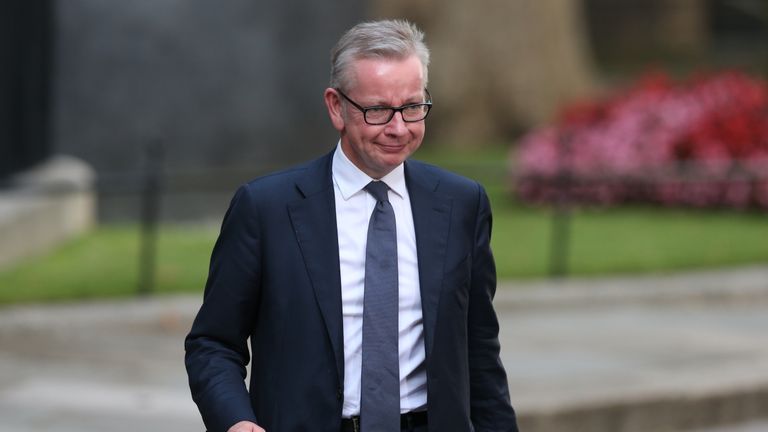‘Get Ready for Brexit’: Government launches PR campaign to prepare public for EU exit
A £100m public information campaign urging people to make sure they are prepared for Britain’s departure from the EU has been launched by the government.
The government’s largest ever public information campaign will see “Get Ready for Brexit” adverts run on TV, radio, social media and billboards ahead of Brexit day on 31 October.
It promotes a website where people and businesses can check what, if anything, they need to do to be ready for Brexit.
Users can fill in a questionnaire and are then given results which suggest how to start preparing.
Prime Minister Boris Johnson has pledged to take Britain out of the EU at the end of October, with or without a deal.
According to government research, 50% of people think Brexit will happen then, 42% of small and medium sized businesses are not sure how they can get ready and 31% of the public have looked for information on how to prepare for Brexit.
Michael Gove, cabinet minister in charge of no-deal Brexit preparations, said: “Ensuring an orderly Brexit is not only a matter of national importance, but a shared responsibility.
“This campaign will encourage the country to come together to Get Ready for Brexit on 31 October.”
The campaign is broadly aimed at UK citizens intending to travel to Europe, the food and drink industry and exporters to the EU.
:: Listen to Sophy Ridge on Sunday on Apple podcasts, Google podcasts, Spotify, Spreaker
A further 20 audiences, like the equine industry and legal professions, will be provided with more specific information.
Some of the advice on the website includes a warning to those travelling with pets that they might not be able to take their animals abroad until 2020 and advising them to contact their vet “at least four months” before travelling to have all of the required paperwork.
Those travelling to the EU after Brexit day are told they should “check for disruption” because “border checks may take longer”.
People are advised to renew their passports “as soon as possible”.
There is also a warning that those using their phones in the EU “may be charged” for using their device “if your operator has reintroduced roaming charges”.
For businesses, the government says some of the key actions firms need to take include:
- Getting an Economic Operator Registration and Identification number to export to the EU. VAT registered businesses will automatically receive one, but micro businesses have to register themselves;
- Acquiring the right documents to transport goods at the border;
- Applying for the vital support packages that are available, such as grants.
Source: Read Full Article




